- About MAA
- Membership
- MAA Publications
- Periodicals
- Blogs
- MAA Book Series
- MAA Press (an imprint of the AMS)
- MAA Notes
- MAA Reviews
- Mathematical Communication
- Information for Libraries
- Author Resources
- Advertise with MAA
- Meetings
- Competitions
- Programs
- Communities
- MAA Sections
- SIGMAA
- MAA Connect
- Students
- MAA Awards
- Awards Booklets
- Writing Awards
- Teaching Awards
- Service Awards
- Research Awards
- Lecture Awards
- Putnam Competition Individual and Team Winners
- D. E. Shaw Group AMC 8 Awards & Certificates
- Maryam Mirzakhani AMC 10 A Awards & Certificates
- Two Sigma AMC 10 B Awards & Certificates
- Jane Street AMC 12 A Awards & Certificates
- Akamai AMC 12 B Awards & Certificates
- High School Teachers
- News
You are here
2024 Summer Workshops

MAA OPEN Math is back. We are excited to offer seven workshops for Summer 2024. Each workshop provides online, teaching-focused professional development in mathematics. Descriptions and registration information is listed below. We hope to see you this summer!
Please note all workshop times are listed in EASTERN TIME.
Minority-Serving Institutions: A special price is available to you. Simply enter the discount code MSI2024 at checkout and receive $50 off registration!
Who’s Afraid of Generative AI: Promises and Challenges of AI for the Mathematics Classroom
May 13-16, June 17, August 12, October 7 | 11am-5pm ET
Artificial intelligence, particularly generative AI like ChatGPT, is on everyone’s mind right now. There is a robust and ongoing discussion of its risks and benefits, its potential impacts on higher education, the philosophical and ethical questions it engenders, and the ways in which faculty and students might use it effectively. This workshop will support participants as they dive into these conversations as informed contributors. After a brief but informative exploration of the mathematics that makes these new technologies work, we will engage with the pedagogical challenges and promises they bring to the foreground. Participants will have the opportunity to work hands-on with a selection of AI platforms, with particular emphasis on the most widely used large language model, ChatGPT. They will develop assignments or lessons that encourage students to make use of these technologies in a competent and yet critical manner. This workshop is full and has a waitlist.
PRESENTERS
Lew Ludwig, Gizem Karaali & Kira Hamman
About the Presenters
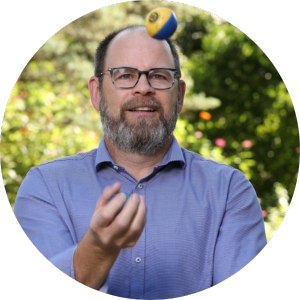 Lew Ludwig is a professor of mathematics and the Director of the Center for Learning and Teaching at Denison University. An active member of the MAA, he served on the project team for the MAA Instructional Practices Guide, was the creator and senior editor of the MAA’s former Teaching Tidbits blog, and currently writes the Navigating the Future with AI series for Math Values.
Lew Ludwig is a professor of mathematics and the Director of the Center for Learning and Teaching at Denison University. An active member of the MAA, he served on the project team for the MAA Instructional Practices Guide, was the creator and senior editor of the MAA’s former Teaching Tidbits blog, and currently writes the Navigating the Future with AI series for Math Values.
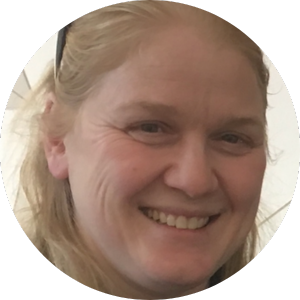
Gizem Karaali is a professor of mathematics at Pomona College. She is a founding editor of Journal of Humanistic Mathematics and a senior editor of Numeracy. Karaali has organized or facilitated several paper sessions and professional development workshops for mathematics faculty and K-12 teachers on a wide range of themes such as humanistic mathematics, teaching math for social justice, and writing.
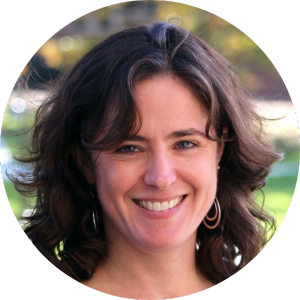 Kira Hamman is an assistant teaching professor in mathematics and director of the Honors Program at Pennsylvania State University, Mont Alto. Within the MAA, she is currently the editor of Math Values and chair of the Council on Communities. Her recent interests include the intersections between quantitative literacy and healthy democracy, and building the capacity for public-facing scholarship in the mathematics community.
Kira Hamman is an assistant teaching professor in mathematics and director of the Honors Program at Pennsylvania State University, Mont Alto. Within the MAA, she is currently the editor of Math Values and chair of the Council on Communities. Her recent interests include the intersections between quantitative literacy and healthy democracy, and building the capacity for public-facing scholarship in the mathematics community.
Inclusive Active Learning in Mathematics
June 3, 4, 6 & 7 | 11am - 5:30pm ET
This workshop will support participants to adopt or fine-tune the use of active learning instructional practices with a focus on pedagogy that supports inclusive and equitable learning communities. We will consider course structures, policies, instructional practices and assessment strategies related to Precalculus, Calculus 1, 2 and 3. The workshop will be appropriate, relevant and applicable for all participants interested in using active learning instructional practices including those considering active learning for the first time and those who have been using active learning approaches for many years. The workshop will be organized around the premise that we can all learn from each other and we all have experiences that, when shared, contribute to the learning of others in the group. Participants will have opportunities to engage with scenarios and other attendees for the purpose of considering how to facilitate conversations with other members of their departments and navigating challenging situations and conversations that can arise in undergraduate mathematics classrooms. Participants will have the opportunity to develop or revise a syllabus and/or lesson plans for a class they will be teaching the following semester. The deadline to register for this workshop has been extended to Friday, April 26, 2024 at 11:59 PM.
PRESENTERS
Nancy Kress, Matthew Voigt, Wendy Smith, Antonio Martinez & Rebecca Machen
About the Presenters
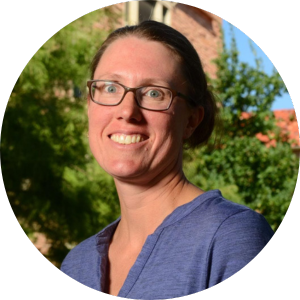 Dr. Nancy Kress is an Assistant Teaching Professor at University of Colorado Boulder. She is a former high school teacher and an emerging expert on equitable and inclusive mathematics instruction. She has extensive experience co-designing and co-facilitating professional development focused on equity and inclusion in the early undergraduate mathematics context.
Dr. Nancy Kress is an Assistant Teaching Professor at University of Colorado Boulder. She is a former high school teacher and an emerging expert on equitable and inclusive mathematics instruction. She has extensive experience co-designing and co-facilitating professional development focused on equity and inclusion in the early undergraduate mathematics context.
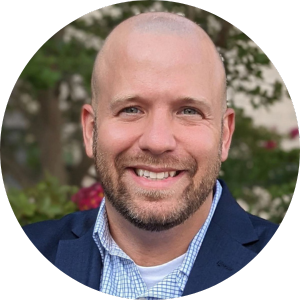
Dr. Matthew Voigt is an Assistant Professor of Engineering and Science Education at Clemson University. He is a proud first-generation college student and Queer researcher. His research centers around issues of equity, access, and power structures occurring in undergraduate STEM programs with a particular focus on gender and sexuality issues.
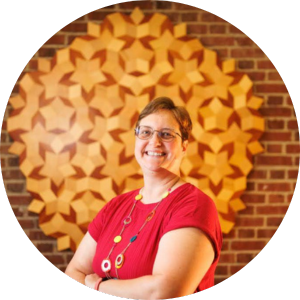
Dr. Wendy Smith (she/they) is a research professor at the University of Nebraska-Lincoln and director of the Center for Science, Mathematics, and Computer Education who engages in equity-focused research related to institutional change and PK-20 STEM education.
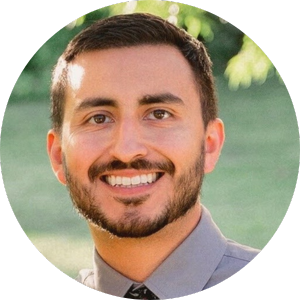 Antonio Martinez is an assistant professor of mathematics education at California State University, Long Beach. He is interested in the role of programming in introductory undergraduate mathematics courses as well as how to equitably support students in active learning classrooms.
Antonio Martinez is an assistant professor of mathematics education at California State University, Long Beach. He is interested in the role of programming in introductory undergraduate mathematics courses as well as how to equitably support students in active learning classrooms.
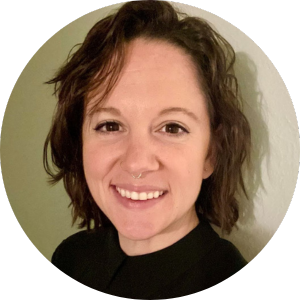 Dr. Rebecca Machen (she/her) is the Director of STEM Instruction for the Student Academic Success Center at CU Boulder. The center has a mission to serve underrepresented, low income, and first-generation scholars on campus. She has been an educator for the last 15 years in K-12, community college, and university settings. Her research focuses on inclusive pedagogical practices and faculty training in undergraduate mathematics classes.
Dr. Rebecca Machen (she/her) is the Director of STEM Instruction for the Student Academic Success Center at CU Boulder. The center has a mission to serve underrepresented, low income, and first-generation scholars on campus. She has been an educator for the last 15 years in K-12, community college, and university settings. Her research focuses on inclusive pedagogical practices and faculty training in undergraduate mathematics classes.
Critical Approaches to Equity-Focused Departmental Transformation through Data- Informed Decision Making
June 17, 18, 20 & 21 | 11am-5:30pm ET
Is your mathematics department seeking to improve student grades and retention? Have you seen local data that show inequitable student outcomes from mathematics courses? How can a mathematics instructor respond to these complex situations? This workshop takes a critical approach to using data (both quantitative and qualitative) to improve equity in undergraduate mathematics courses, including asking questions about what are the intended outcomes, what data can show progress toward those outcomes, and what changes could local teams implement to make that progress. A critical approach critiques and challenges the systems that create inequalities and seeks to make improvements that extend beyond the confines of those systems. Systems include the mathematical content we teach, the way we teach it, the programs that support these teachings, the departments that house these programs, the advising processes placing students into these courses, and so much more. Participants will explore their local systems and current data, making plans for forming local transformation teams with equity-focused goals that will draw on data spanning student achievement, experience, and student access, and also students’ mathematics identities and both classroom and department power dynamics. We encourage teams from the same institution — reach out to programs@maa.org to learn how to get a discount for your team. The deadline to register for this workshop is May 7, 2024 at 11:59 PM.
PRESENTERS
Rachel Funk, Kelsey Quaisley, Amy Been Bennett, Wendy Smith, Matthew Voigt & Jess Ellis Hagman
About the Presenters
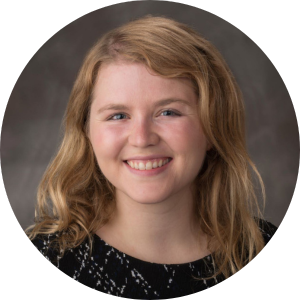
Dr. Rachel Funk (she/her) is a research scientist for the Center for Science, Mathematics, and Computer Education at the University of Nebraska-Lincoln. Her research focuses on student experiences, including how student partnerships serve as a mechanism to support equity and institutional change.
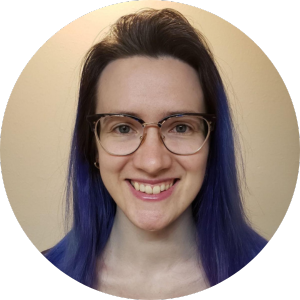
Dr. Kelsey Quaisley (she/they) is a postdoctoral scholar in the Department of Mathematics at Oregon State University. Both her research and teaching interests include the preparation and support of equitable instructors of mathematics at the tertiary, secondary, and primary levels. Her research aims to understand the stories and identities of students, instructors, and institutional leaders in shaping each other’s experiences and learning.
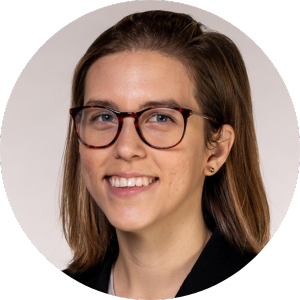
Dr. Amy Been Bennett (she/her) is a Research Assistant Professor at the University of Nebraska-Lincoln in the Center for Science, Mathematics, and Computer Education and the Department of Mathematics. Her work focuses on equitable, evidence-based instructional practices in undergraduate mathematics courses, as well as developing mathematical modeling curricula at the K–12 and post-secondary levels.

Dr. Wendy Smith (she/they) is a research professor at the University of Nebraska-Lincoln and director of the Center for Science, Mathematics, and Computer Education who engages in equity-focused research related to institutional change and PK-20 STEM education.

Dr. Matthew Voigt is an Assistant Professor of Engineering and Science Education at Clemson University. He is a proud first-generation college student and Queer researcher. His research centers around issues of equity, access, and power structures occurring in undergraduate STEM programs with a particular focus on gender and sexuality issues.
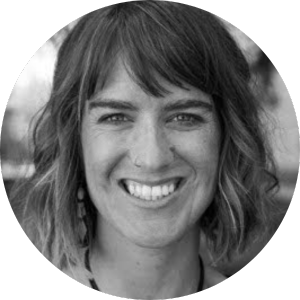
Dr. Jess Ellis Hagman (she/her) is an Associate Professor of Mathematics at Colorado State University, whose current research includes working with mathematics departments to center equity in the critical transformations of their introductory mathematics programs.
Team-Based Inquiry Learning
June 24, 25, 26, 27 & 28 | 11am-5pm ET
Team-Based Inquiry Learning (TBIL) is a structured form of active learning that uses the structure of Team-Based Learning as a means of bringing inquiry into lower division courses. This workshop will provide instructors with an overview of how to use TBIL in their courses, as well as give an introduction to the TBIL resource library, which includes a complete set of materials for teaching Calculus I, Calculus II, and Linear Algebra via TBIL. The deadline to register for this workshop is May 14, 2024 at 11:59 PM.
PRESENTERS
Drew Lewis, Tien Chih, Francesca Gandini, Joe Hibdon, Tonya DeGeorge & Jordan Kostiuk
About the Presenters
 Drew Lewis is a higher education consultant and leads the NSF-funded Team-Based Inquiry Learning project. He is a Team-Based Learning Collaborative certified Trainer-Consultant and is experienced in providing faculty development around topics such as Team-Based Learning, alternative grading, and inclusive teaching. The deadline to register for this workshop is May 14, 2024 at 11:59 PM.
Drew Lewis is a higher education consultant and leads the NSF-funded Team-Based Inquiry Learning project. He is a Team-Based Learning Collaborative certified Trainer-Consultant and is experienced in providing faculty development around topics such as Team-Based Learning, alternative grading, and inclusive teaching. The deadline to register for this workshop is May 14, 2024 at 11:59 PM.

Tien Chih is an Assistant Professor of mathematics at Oxford College of Emory. He was a participant in the first TBIL workshop offered in 2021, and has been implementing TBIL in his classes since. He is one of the co-authors of “Calculus for Team-Based Inquiry Learning”, a freely available activity book designed to help instructors more easily implement TBIL in their courses.
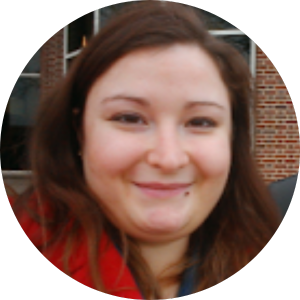 Francesca Gandini is an Assistant Professor of Mathematics, Statistics, and Computer Science at St. Olaf College. She was a participant in the first TBIL workshop offered in 2021 and has been working on the TBIL project ever since. She is also one of the co-authors of “Calculus for Team-Based Inquiry Learning”, and has previously run virtual workshops for the Alliance for Michigan IBL.
Francesca Gandini is an Assistant Professor of Mathematics, Statistics, and Computer Science at St. Olaf College. She was a participant in the first TBIL workshop offered in 2021 and has been working on the TBIL project ever since. She is also one of the co-authors of “Calculus for Team-Based Inquiry Learning”, and has previously run virtual workshops for the Alliance for Michigan IBL.

Joe Hibdon is an Associate Professor of mathematics at Northeastern Illinois University. He was a participant in the first TBIL workshop offered in 2021, and has been implementing TBIL in his classes since. He is also one of the co-authors of “Calculus forTeam-Based Inquiry Learning”. He has done extensive work, including on several grant projects, on broadening participation in STEM and mathematics in particular.
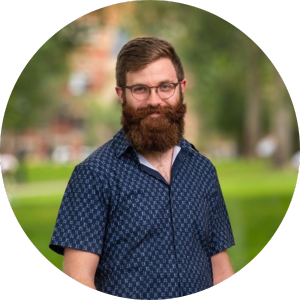
Jordan Kostiuk is a Senior Lecturer at Brown University. He has been teaching Linear Algebra with TBIL since Fall 2022 after attending a TBIL workshop in the Summer of 2022. In order to accommodate the ~600 students/year in this course, Jordan trains graduate students and postdocs to facilitate TBIL lessons, allowing for a coordinated multiple-section implementation of TBIL with sections of 48 students.
Designing Professional Development Programs for Graduate Teaching Assistants
July 9, 10, 11 & 18 | 11am-5pm ET
Is your department interested in helping graduate students learn to teach? Perhaps your department is considering starting a teaching-focused professional development program? Or maybe your department has a program but is interested in updating and enhancing it?
Many departments now offer pre-semester orientations, semester-long seminars, and other opportunities for graduate students who are new to teaching so they will be well-equipped to provide high-quality instruction to undergraduates.
This workshop will provide guidance on the design of mathematics department-based professional development programs about teaching for graduate students. Each day will include several hours of synchronous and asynchronous activities, plus work time. At the workshop, participants will:
- learn how to design a successful graduate student professional development program
- gain familiarity with research and evaluation related to teaching and instructor preparation
- gain access to a large collection of lessons, activities, and assignments to use in your program
Departments are encouraged to send two-person teams to the workshop. The deadline to register for this workshop is May 28, 2024 at 11:59 PM.
PRESENTERS
Natasha Speer, Jack Bookman, Emily Braley, Ian Thackray, Shandy Hauk & TJ Murphy
About the Presenters
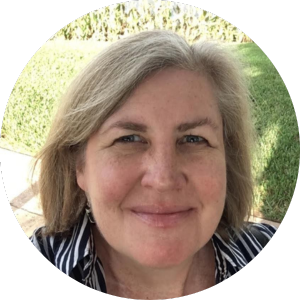 Natasha Speer is a faculty member at The University of Maine, affiliated with the Department of Mathematics and Statistics and the Maine Center for Research in STEM Education. Her work includes design of materials and programs for teaching-focused professional development as well as education research on the teaching of undergraduate mathematics.
Natasha Speer is a faculty member at The University of Maine, affiliated with the Department of Mathematics and Statistics and the Maine Center for Research in STEM Education. Her work includes design of materials and programs for teaching-focused professional development as well as education research on the teaching of undergraduate mathematics.
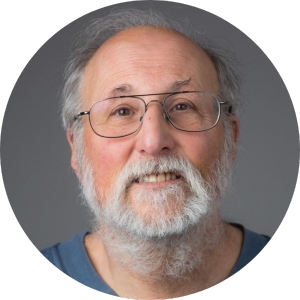
Jack Bookman is Professor of the Practice, Emeritus in Mathematics at Duke University. Since 1987, in addition to teaching mathematics, he has been preparing graduate students in Mathematics for their teaching responsibilities.
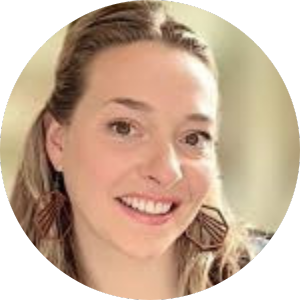 Emily Braley is an Associate Teaching Professor in Mathematics and the Assistant Dean of Undergraduate Academic Affairs at Johns Hopkins University. Emily oversees the teaching orientation for new TAs in math and facilitates a teaching seminar for all first-year graduate students in mathematics. Her work includes supporting STEM departments to cultivate researched-based practices in STEM teaching and in their undergraduate curriculum assessment efforts. She supports the training and implementation of undergraduate learning assistants across the school of Arts and Sciences.
Emily Braley is an Associate Teaching Professor in Mathematics and the Assistant Dean of Undergraduate Academic Affairs at Johns Hopkins University. Emily oversees the teaching orientation for new TAs in math and facilitates a teaching seminar for all first-year graduate students in mathematics. Her work includes supporting STEM departments to cultivate researched-based practices in STEM teaching and in their undergraduate curriculum assessment efforts. She supports the training and implementation of undergraduate learning assistants across the school of Arts and Sciences.

Ian Thackray (he/him) is a Masters of Science in Teaching student at the University of Maine. His research focuses on investigating the mathematical knowledge for teaching average rate of change of post-secondary teachers, and has been developing and adapting online Calculus activities over the last 5 years for Matheno. He helps maintain and upload resources to the CoMInDS Resource Suite, manages the CoMInDS Hub and helps with various background activities during workshops.
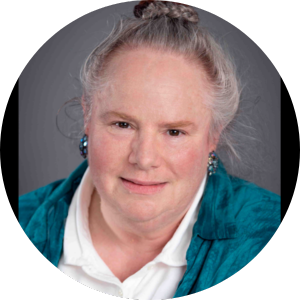
Shandy Hauk (she/her), San Francisco State University | I grew up in and around Los Angeles. My BA is in theater and film-making and my first California teaching credential was in English. I taught middle and high school (mostly) for about 5 years before quitting teaching, mortgaging my house, and returning to university in math. Finished a PhD in math at UC Irvine, then a post-doc in math ed at Arizona State. Current projects include Expanding Equity and Access in Discrete Mathematics, CoMInDS, and College Math Video Cases.

TJ Murphy (she/her) is a professor in the Department of Engineering & Computing Education at the University of Cincinnati (#NotAnEngineer). Her background is research in undergraduate education. She has a history of studying retention of undergraduate engineering majors, especially those from marginalized or minoritized backgrounds. Her other area of work has been on the professional development of graduate teaching assistants in mathematics and in engineering.
Engaging Multivariable Calculus Students using CalcPlot3D and 3D-Printed Surfaces
July 22, 23, 24 & 25 | 11am-5pm ET
Learn to use CalcPlot3D and hands-on explorations with 3D-printed surfaces to help your students visualize and better understand a variety of three-dimensional calculus concepts. Explore planes, motion along a curve, surfaces, contour plots, partial derivatives, gradients, directional derivatives, constrained optimization, regions of integration, vector fields, and many more topics from multivariable calculus.
Learn the features of CalcPlot3D and how to use it effectively in your teaching. Work with other participants in small groups to explore a variety of topics using CalcPlot3D. Learn to use a scripting feature in CalcPlot3D to create dynamic slideshows for classroom demonstrations and for hands-on student concept explorations. The deadline to register for this workshop is June 11, 2024 at 11:59 PM.
PRESENTERS
Paul Seeburger, Deborah Moore-Russo, Stepan Paul & Shelby Stanhope
About the Presenters

Paul Seeburger has been teaching math at Monroe Community College since 1998. He developed the CalcPlot3D app to help students visualize multivariable calculus and is now lead-PI on an NSF IUSE project focused on expanding CalcPlot3D’s 3D-printing features and developing hands-on guided learning activities using 3D-printed surfaces to improve student understanding of multivariable calculus concepts. Paul has presented in-person minicourses on the CalcPlot3D project at MathFest, the Joint Math Meetings, and ICTCM, and two online workshops for the MAA’s Project NExT.

Deborah Moore-Russo is a Professor of Mathematics and the First-Year Mathematics Director at the University of Oklahoma (OU). She studies the multiple ways a single mathematical concept is conceptualized, represented, visualized, and communicated. She looks at how physical and digital instructional resources, as well as instructional tasks, influence student learning. She also thinks about whether instructional decisions help students perceive mathematics as a dynamic, engaging discipline that goes beyond memorization of rules and equations.
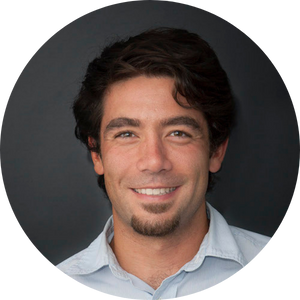
Stepan Paul is a Teaching Assistant Professor of Mathematics at North Carolina State University, where he has taught since 2020. He works on developing novel illustrations of concepts in calculus and geometry with dynamic geometry software and digital fabrication. He currently coordinates the multivariable calculus course at NC State and organizes the departmental Teaching and Learning Seminar.
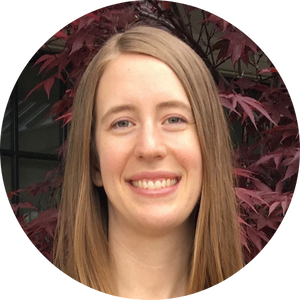
Shelby Stanhope is an Associate Professor of Mathematics at the U.S. Air Force Academy. Her work focuses on innovative teaching methods in multivariable calculus, aiming to help students grasp three-dimensional concepts through tactile activities using 3D-printed models, computer visualization with CalcPlot3D, and experiential learning field trips.
Implementing Research-Based Instruction in Introductory Proofs Courses
July 29-30 & August 1-2 |11am-5pm ET
The Proofs Project, an NSF-funded project, will provide a research-based professional development experience for instructors of introductory proofs courses, whether they’re teaching for the first, fifth, or fiftieth time. The purpose of the workshop is to support instructors’ efforts to elicit and meaningfully address some of the persistent challenges (epistemological obstacles) students experience when proving. Participants will have access to research-based tasks and instructional modules (with video of actual classroom interactions) intended to support students’ development of logical structures necessary for mastering proofs and proving. During the workshop, participants will design their own research-based unit or lesson plan addressing challenges associated with learning to prove. They can take advantage of related tasks designed to elicit and address epistemological obstacles that their students might experience in the classroom. Then, participants will have the opportunity to share their lessons and units with each other, so that they might benefit from the collective ideas generated by workshop participants. Ultimately, this workshop will build community among introductory proofs instructors as we take on the challenge of implementing effective research-based instruction. To learn more about the Proofs Project, please visit our website. The deadline to register for this workshop is June 18, 2024 at 11:59 PM.
PRESENTERS
Rachel Arnold, Andy Norton & Corinne Mitchell
About the Presenters
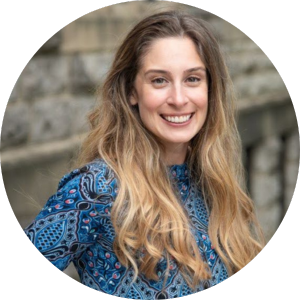
Rachel Arnold is a Collegiate Associate Professor of Mathematics at Virginia Tech and the recipient of the university’s 2022 Alumni Award for Excellence in Teaching. Her passion lies in understanding students' mathematical reasoning as they transition to proof-based mathematics. She currently serves as PI on an NSF-IUSE grant and Co-PI on the 4-VA Initiative grant that fund “The Proofs Project.” The research-based instructional tools that she designs support students' abstraction of logical reasoning that is fundamental for advanced STEM study. Rachel has also designed and coordinated the professional development program for graduate mathematics student teachers at Virginia Tech since 2014. She has extensive experience leading workshops centered on the effective teaching and learning of mathematics.

Andy Norton is a Professor in the Department of Mathematics at Virginia Tech, where he also serves as Graduate Program Director. He conducts research at the intersection of mathematics and psychology, building models of students’ mathematics.
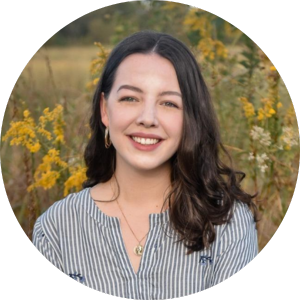
Corinne Mitchell is a first-year PhD student in mathematics at Virginia Tech. Her research focuses on the pedagogical practices of mathematicians, with an eye towards how they support high-level classroom discourse in proof-based math courses. Corinne’s master’s thesis investigated the facilitation of a professional development designed to support teachers taking up the Inquiry-Oriented Abstract Algebra curriculum materials. She is currently serving as a graduate research assistant on the Proofs Project.




